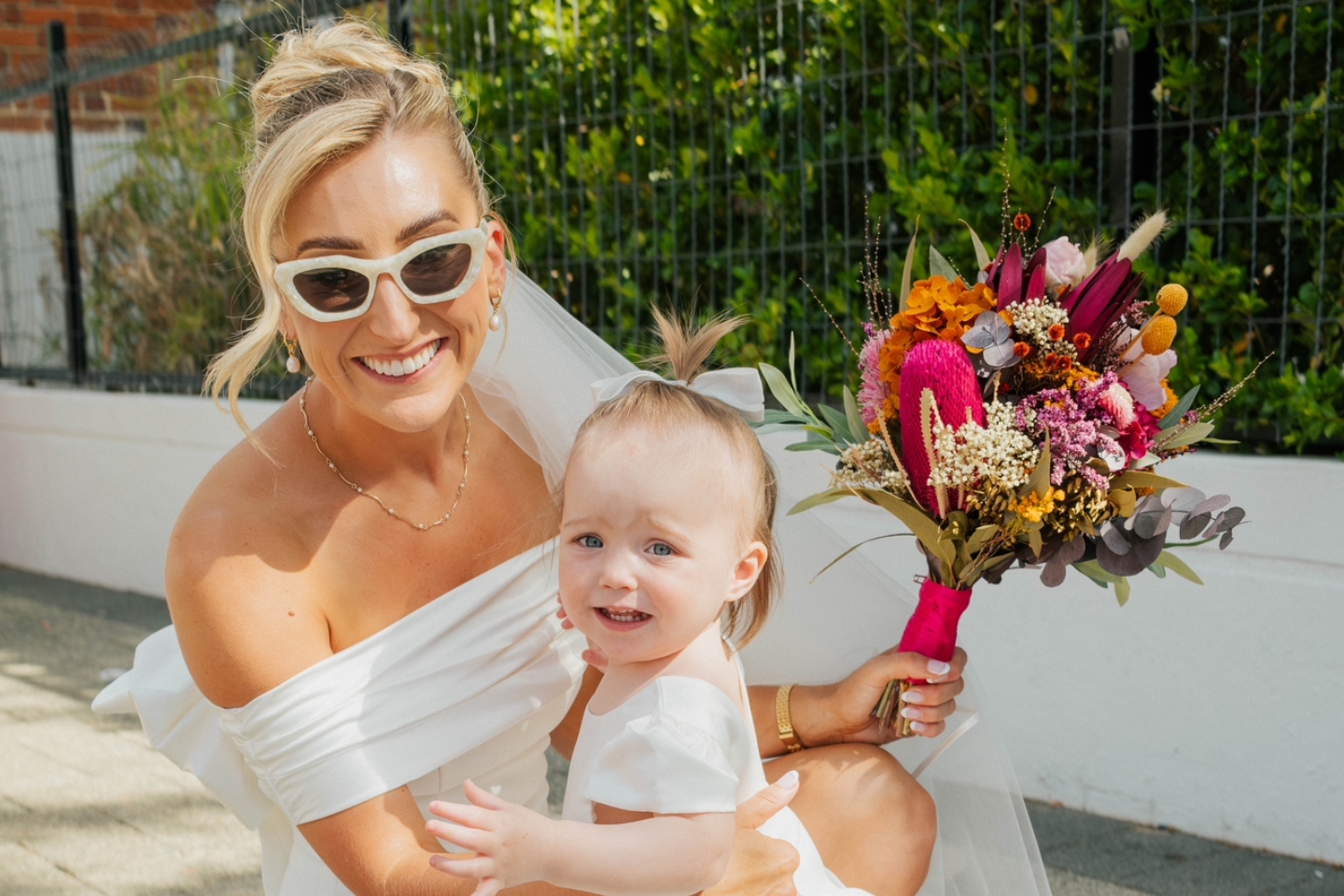On World Maternal Mental Health Day, we shed light on the story of Carly Jellyman, a mother who suffered from delayed postpartum depression for more than a year before being correctly diagnosed.


On World Maternal Mental Health Day, May 7, 2025, we shed light on the story of Carly Jellyman, a mother who suffered from delayed postpartum depression for more than a year before being correctly diagnosed.
World Maternal Mental Health Day has been recognised across the globe for nearly 10 years to celebrate mothers and appreciate the mental health challenges endured during and after pregnancy.
One of the most common of these mental health hardships is postnatal depression, which effects one in 10 women, with depressive symptoms typically appearing in the first few weeks or months after childbirth.
Less commonly, a new mother can begin to experience these symptoms beyond the initial postpartum period, with late-onset postpartum depression showing up one or even two years after childbirth.
It was about one year ago - eight months post-birth - when Ms Jellyman recognised the severity of her mental health struggle but was led to believe there was no tie between this and her pregnancy or birth.
Ms Jellyman, who works as zero2hero’s marketing and communications manager, said she had been battling late-onset postpartum depression for more than a year before a doctor correctly diagnosed her condition.
"Coming out of the maternity leave bubble was when I really started to notice that things weren’t okay, but because I was so far past the ‘danger zone’ of postnatal depression, I didn’t really attribute it as that," Ms Jellyman said.
"I went to my doctor who straight away wanted to prescribe antidepressants and a mental health care plan, and that was fine.
"There was absolutely no mention of postnatal depression at that point."

Carly Jellyman with her daughter Wren.
Ms Jellyman said she believed there was high focus on women’s mental health close to the birth of their child but as time passed, the support for maternal mental health decreased.
"There’s a lot of focus on mental health close to giving birth and the weeks that follow as your hormones are adjusting and you’re adjusting to life as a mother," she said.
"This is considering ‘the hardest’ part mentally, but that’s not always the case. Some women don’t have that straight away or their struggles are more internal and it’s not really until they go back to work or the stresses of everyday life start to accumulate that they realise they’re struggling.
"There’s definitely not enough support out there for women and more needs to be done to raise awareness of the post-pregnancy struggles and realistically how long they last. For example, my daughter is almost two years old and my struggles are more apparent than ever, whereas our health system stops asking ‘are you okay?’ after six months.
"The further you get away from that postpartum stage, the more society believes that you should be absolutely fine, and I think that makes the struggle worse."
"Now having some answers has provided me with so much comfort, but also allows me to get out the black hole I'm in and actually start rebuilding knowing what the issues are." Carly Jellyman
In December last year, Ms Jellyman reached the peak of her mental deterioration and reflecting on the experience, she said she felt like she was going backwards.
"I think there’s so much pressure on women to handle it all and be okay and really thrive post-pregnancy, and it's amazing for women who do have that experience, but the reality is that not all women feel that way," she said.
"That kind of makes the situation worse because you feel extremely alone and isolated, and you kind of question, why am I the only person who's really struggling?"
"In March, I had a bit of a breakdown, burnout I suppose, and I just couldn't do it anymore, couldn't feel like this anymore.
"I went to see a psychologist who instantly began asking me about my birth and unpicking the trauma that went along with that, and she was the first medical professional in two years who had addressed my condition as postnatal depression."

Ms Jellyman said zero2hero, her employer, had been incredibly supportive towards her and receptive to her personal challenges outside of work.
"Prior to the breakdown, but then just going through the struggle, they encourage you to come to work as you are. They know you're a human being and you're always encouraged to talk about how you're feeling and what you’re struggling with," Ms Jellyman said.
"A problem shared is a problem halved. You might come into work feeling terrible one day, and after a 10-minute conversation with a colleague who really gets it, you may feel better.
"On a day-to-day level, your struggles are accepted."
The support of zero2hero provided Ms Jellyman with the space to focus on her mental health healing journey, and she said receiving timely and appropriate support can enable women to recover more swiftly, a benefit to both employer and employee.
"If workplaces had more understanding of the postpartum journey and the length of the journey, it would create a better environment for women to thrive," Ms Jellyman said.
"There's not always awareness or empathy that goes into understanding where that person is in their life, what they're going through and what they've had to do to get there in the morning. This is where zero2hero are unique. It’s no different to key messages we teach students in our mental health education programs - there is so much power in asking someone ‘are you okay?’
"If you have an extremely understanding, empathetic support network, who knows what you're going through and is able to be there for you, then your ability to heal and grow is going to be much faster than someone that doesn't.
"The reason why some women end up with delayed-onset postnatal depression is because they don't have that support system around them in the way they need."
"We need to be more aware that struggling for this length of time postpartum is not normal and deserves attention and support." Carly Jellyman
It wasn’t until Ms Jellyman took matters into her own hands that she received the correct diagnosis and the correct support.
"If I’d stuck with the GP’s advice, this wouldn’t have happened," she said.
"We need to be more aware that struggling for this length of time postpartum is not normal and deserves attention and support. In some cases, it could also be signs of something bigger going on, like ADHD or autism.
"Again, this is not something the GP would initially look for because the symptoms can go undetected, so instead, you are given the easier diagnoses of anxiety or depression."
Ms Jellyman said that having some answers now has provided her with comfort and has allowed her to start rebuilding herself, knowing what the issues are and how she can fix them.
"The last year for me, in a time when I should have really been enjoying the first years of my daughter's life, have been so difficult and so full of self-doubt and constantly believing that I am the problem," she said.
"Parenting is hard, but nobody talks about it, and some people find it harder than others, but everybody wants to look like they're thriving, especially in a world that revolves around social media, where you constantly compare yourself to other people.
"If I can support one other mother or raise a tiny bit of awareness that this can happen maybe I can help stop someone else from struggling, and missing out on the joy that early parenthood, for as long as I did, because they will have the right answers or the right diagnosis much sooner."













